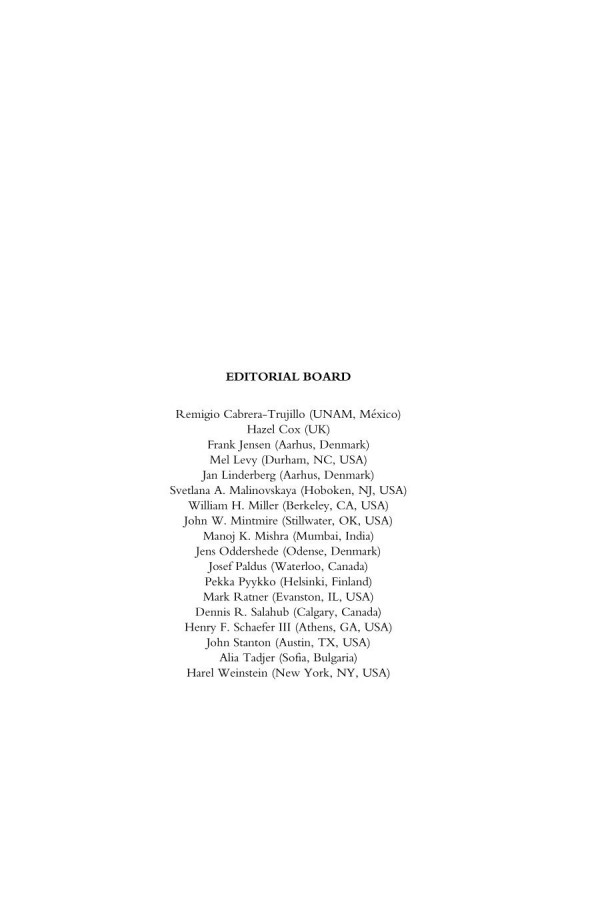

Most ebook files are in PDF format, so you can easily read them using various software such as Foxit Reader or directly on the Google Chrome browser.
Some ebook files are released by publishers in other formats such as .awz, .mobi, .epub, .fb2, etc. You may need to install specific software to read these formats on mobile/PC, such as Calibre.
Please read the tutorial at this link. https://ebooknice.com/page/post?id=faq
We offer FREE conversion to the popular formats you request; however, this may take some time. Therefore, right after payment, please email us, and we will try to provide the service as quickly as possible.
For some exceptional file formats or broken links (if any), please refrain from opening any disputes. Instead, email us first, and we will try to assist within a maximum of 6 hours.
EbookNice Team

Status:
Available5.0
22 reviews
ISBN 10: 0128104002
ISBN 13: 9780128104002
Author: John R. Sabin, Erkki J. Brändas
Advances in Quantum Chemistry: Lowdin Volume presents a series of articles exploring aspects of the application of quantum mechanics to atoms, molecules, and solids.
Chapter One: Per-Olov Löwdin
Acknowledgments
Chapter Two: From Numerical Orbitals to Analytical Ones and Back
Abstract
Introduction
Exponentials
General Bases on One-Dimensional Domains
Momentum Space Representations
Mixed Representations
Four-Component Spinorbitals
Epitome
Chapter Three: The Time-Dependent Variational Principle in Quantum Mechanics and Its Application
Abstract
Basic Equations
Coherent States
Chapter Four: Specifics on the Scientific Legacy of Per-Olov Löwdin
Abstract
Introduction
At the Early QTP
Projection Operators
Fast-Converging CI Expansions
Nearing Full CI with Truncation Energy Errors
Unambiguous Dirac-Type Calculations
Final Remarks
Acknowledgments
Chapter Five: Time-Dependent Perturbation Theory with Application to Atomic Systems
Abstract
Introduction
Standard Time-Independent Perturbation Theory
Relativistic and QED Effects
Time-Dependent Perturbation Theory
QED and Electron Correlation
Concluding Remarks
Acknowledgments
Chapter Six: Quantum Partitioning Methods for Few-Atom and Many-Atom Dynamics
Abstract
Introduction
Molecular Effective Potentials and Long-Lived States from Partitioning Methods
Dissipative Many-Atom Dynamics from Partitioning Methods
Conclusions
Acknowledgments
Chapter Seven: Vibrational Quantum Squeezing Induced by Inelastic Collisions
Abstract
Introduction
Algebraic Form of the Landau–Teller Model
Squeezing Coherent States
Squeezing from an Initial Thermal Distribution
Discussion
Acknowledgments
Chapter Eight: Resonances in the Continuum, Field-Induced Nonstationary States, and the State- and Property-Specific Treatment of the Many-Electron Problem
Preface
Quantum Chemistry and Many-Electron Problems in the High-Lying Portions of the “Excitation Axis”
Topics
State- and Property-Specific Quantum Chemistry
Backgrounds
Overview and Elements of the SPS Theory on Topics I, II, and III
Epilogue
Acknowledgments
Chapter Nine: High-Temperature Superconductivity in Strongly Correlated Electronic Systems
Abstract
Per Olov Löwdin
Introduction to Superconductivity
The Pairing Instability in Classical and High-Temperature Superconductors
ODLRO in Superconductors
The Bohm–Pines Hamiltonian
Total Hamiltonian
Choice of Localized Basis Functions and Summary of Group Theoretical Analysis of Cuprate Superconductor Real-Space Condensate Wave Function
The Superconducting Ground State
Condensate Wave Functions
Role of Electron Correlation
Chapter Ten: Quantum Chemistry and Superconductors
Abstract
Introduction
Coupling and Localization
The Hubbard Gap and the Absorption Spectrum of Transition Metal Oxides
Wave Functions and Conductivity in the Local State
Organic SC
Tungsten and Molybdenum Bronzes
Conclusion
Acknowledgments
Chapter Eleven: State-Quantum-Chemistry Set in a Photonic Framework
Abstract
Photon q-States: Fock Space
Basic Photonic Scheme
Abstract and Laboratory Spaces: Linking/Relating Systems
Quantum Physics of Tonomura Double-Slit Experiment
One-Photon Initiated Quantum Physical Processes
Probe Through X-Ray and Higher Frequency Photon States
Chemistry from a Photonic Quantum Physical Perspective
Information Transfers
Discussion
Acknowledgments
Chapter Twelve: Quantum Chemistry with Thermodynamic Condition – A Journey into the Supercritical Region and Approaching the Critical Point
Abstract
Introduction
Short Review of Some Molecular Studies in the Supercritical Region
Supercritical Ar and the Vicinities of the Critical Point
Summary and Conclusions
Acknowledgments
Chapter Thirteen: Electron Propagator Theory – Foundations and Predictions
Abstract
Introduction
Poles and Residues of the Electron Propagator
Derivation of the Dyson Quasiparticle Equation
Approximations in the Dyson Quasiparticle Equation
Test Calculations
Recent Applications and Extensions
Conclusions and Prospects
Chapter Fourteen: Cognition of Learning and Memory – What Have Löwdin's Orthogonalizations Got to Do With That?
Abstract
Introduction
Recapitulation of Orthogonalization Schemes
Numerical Demonstration
A Model for Neuronal Network
Adaptation to Cognitive Memory
In Sum
Acknowledgment
Chapter Fifteen: Ab Initio Complex Potential Energy Surfaces from Standard Quantum Chemistry Packages
Abstract
Motivation and Difficulties in Calculating CPES
Ab Initio CPES by Using Existing and Modified SQCPs — A Brief Overview
CPES from SQCPs — Recent Developments
Concluding Remarks
Acknowledgments
Chapter Sixteen: High-Resolution Quantum-Mechanical Signal Processing for In Vivo NMR Spectroscopy
Abstract
Introduction
Methods
Results
Discussion and Conclusions
Acknowledgments
a high volume
a low volume
b volume
low-volume
volume d
Tags: John Sabin, Erkki Brändas, Löwdin Volume